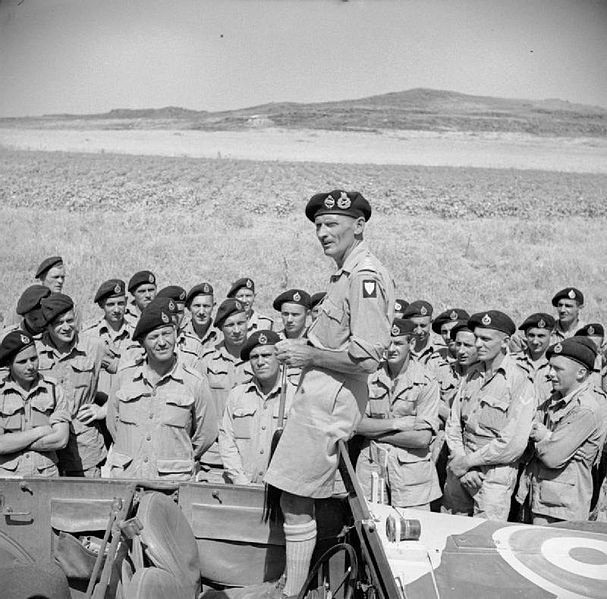Montgomery clashed with British General Harold Alexander over the strategy to be adopted for the landing. At the beginning of May 1943, he succeeded in imposing his line, which aimed to avoid the dispersion of the available forces. He was then put in charge of the East Task Force, with more than 110,000 British and Canadian troops, which was to land in the south-east on the stretch of coast from Capo Passero to the Gulf of Noto.
Because of the ease of the conquest of Syracuse and Augusta, Montgomery mistakenly thought that they could reach Catania in a few days, however he was blocked by German forces on the San Fratello Line. On 18 July, he was forced to admit the stalemate and the numerous losses and decided to attempt a flanking manoeuvre west of Mount Etna.
However, this slowdown combined with the rapid American advance on Palermo changed the balance of power within the Allied commands. FOr this reason, in the meetings that took place on the 25 and 28 July in Syracuse and Palermo respectively, meetings which were anything but cordial, the previously established plans were reviewed and changed.
Having called up the 78th division, the British entered Catenanuova on 30 July and Centuripe on 3 August after a bitter battle. Only on 5 August was Montgomery able to reach Catania. He also lost the race to Messina, where the American forces arrived on the evening of the 16 August and Patton triumphantly entered on the morning of the 17 August, although Montgomery likely let that one go to save resources for the landing in Italy.
In fact, on 29 August, US General Eisenhower landed in Catania to set up Operation Baytown, which took the men of the 8th Army into Calabria on 3 September. Montgomery was then the protagonist of the capture of Foggia on 27 September, and that of Vasto on 5 November. On 1 December he entered Lanciano, where he was immortalised in a famous photo inside the church of San Donato.
In January 1944, Montgomery returned to Britain to take command of the 21st Army Group and then of the ground troops of Operation Overlord (D-Day). A reminder of his experience in Italy remains in the way Italians still refer to the Royal Navy's typical cloth coat with hood and frog fasteners as a 'Montgomery’.
